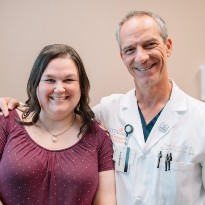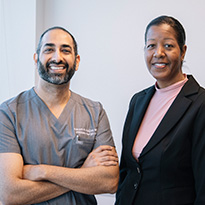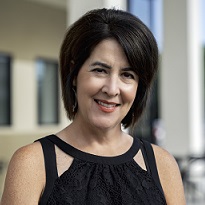The process for determining the severity of colon cancer is called staging. Stages range from zero to four, with Stage 0 being the least advanced. Determined by the size of the tumor and dependent on the extent of cancer spread, staging helps determine the prognosis and treatment plan for each patient based on the severity of their condition.
Stage 0: In this stage, the cancer has not spread within the layers of the colonic wall. Cancerous tissue is normally removed using local excision during a colonoscopy. A procedure called a partial colectomy will be performed if the tumor cannot be completely removed and it must be removed in multiple pieces, or if the tumor is too large and a section of the colon needs to be removed.
Stage I: For cancers that have developed from polyps and have invaded the colonic wall but have not spread outside of it, no treatment may be required beyond a partial colectomy (which includes the removal of lymph nodes).
Stage II: These cancers are larger, have extended through the colonic wall and sometimes into surrounding tissues. These cancers can usually be removed via partial colectomy with the removal of lymph nodes. Chemotherapy is considered for those at high risk of having the cancer return. Many factors affect the level of chemotherapy prescribed, and medical opinions vary widely about when it should be used for treating Stage II colon cancer.
Stage III: At this stage, the cancer has spread to the lymph nodes but not to the organs or other parts of the body. Partial colectomy and removal of the lymph nodes are generally followed by chemotherapy. Patients unable to tolerate surgery undergo chemotherapy, radiation or both.
Stage IV: Cancers in this most serious stage have progressed beyond nearby lymph nodes and the colon and have spread to distant tissues and organs. The disease often spreads to the liver but may also metastasize in other organs. In some cases, the cancer is contained in small enough areas for surgical removal. Surgery is then followed by chemotherapy to extend life expectancy. Surgery, however, is often not a viable option for Stage IV patients. Chemotherapy is the standard treatment for those with extensive metastasis.
For patients whose cancer has spread to the liver, local therapies such as ablation, which destroys cancer cells in the liver, or embolization, which stops blood flow to cancer cells in the liver via injection can be considered. These procedures require a team of specialists (interventional radiologists, radiologists and medical oncologists) to work together, providing the most advanced and comprehensive care possible.






